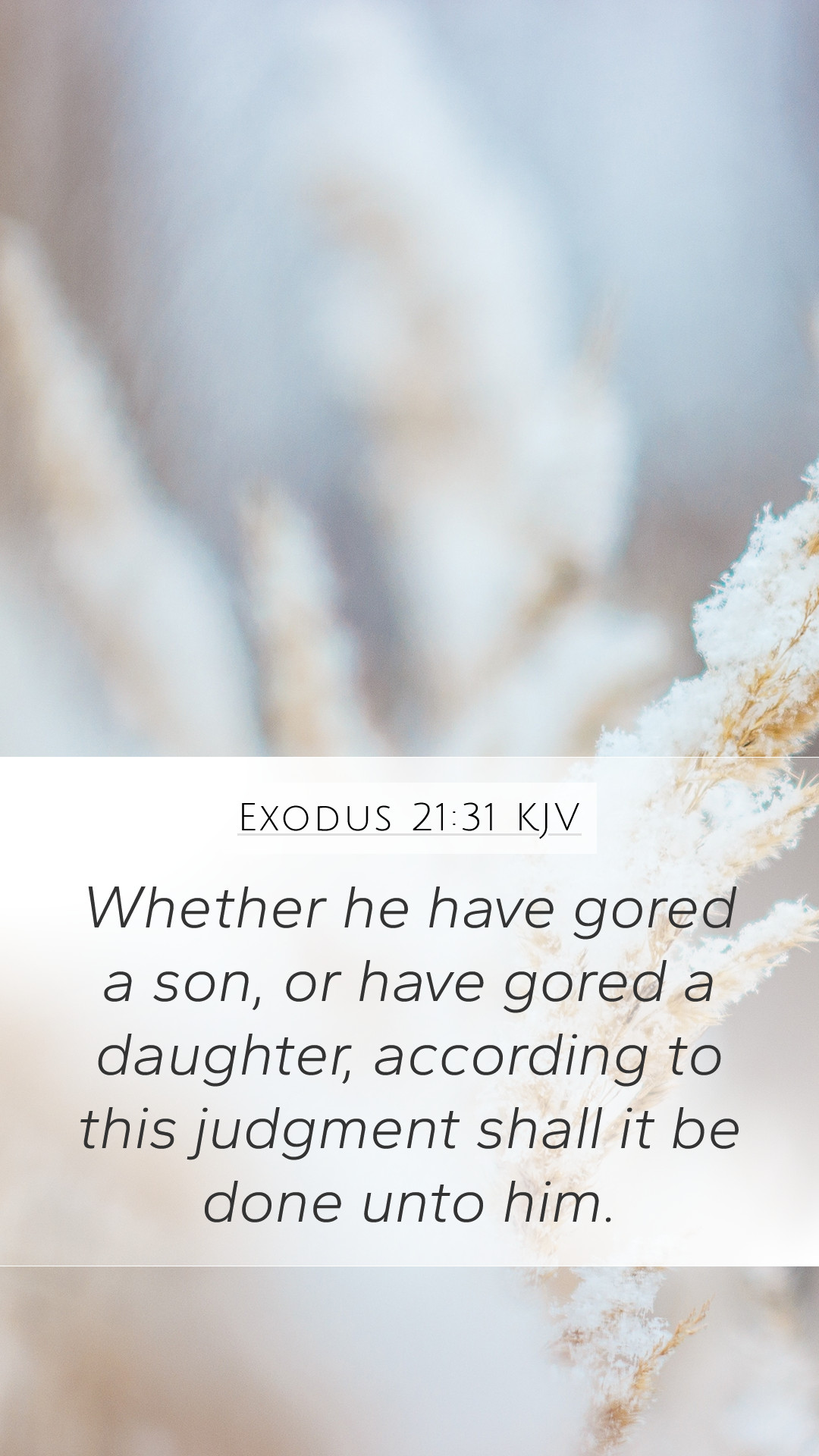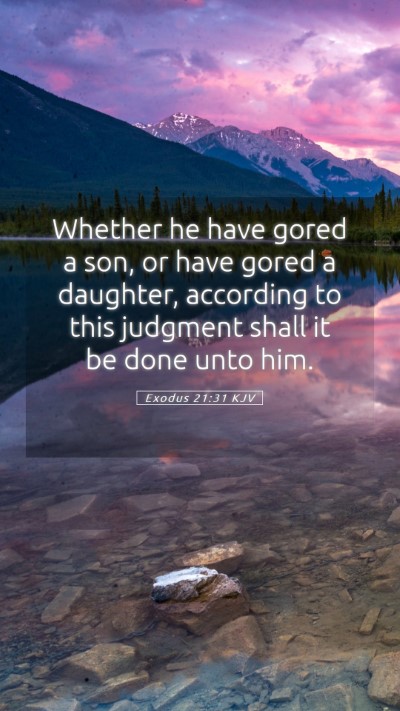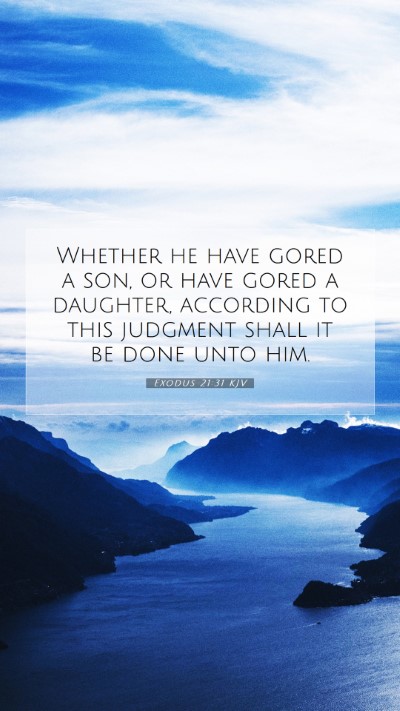Exploring the Meaning of Exodus 21:31
Exodus 21:31 states, "If it be known that the ox has used to push in time past, and it hath been testified to his owner, and he hath not kept him in, but that he hath killed a man or a woman; the ox shall be stoned, and his owner also shall be put to death." This verse serves as a legal guide in the community of Israel regarding accountability for property and its management, particularly focusing on the behavior of animals and the responsibility of their owners.
Insights from Public Domain Commentaries
To enhance our Bible verse understanding of Exodus 21:31, various public domain commentaries provide valuable insights:
Matthew Henry's Commentary
Matthew Henry emphasizes the principle of accountability that this passage conveys. He explains that the law serves to establish clear guidelines on the consequences of negligence. If an owner has repeatedly ignored their responsibility towards a dangerous ox, as evidenced by its previous aggressive behavior, they bear the guilt if that ox injures or kills someone. This reflects the broader biblical theme of personal responsibility within a community.
Albert Barnes' Notes on the Bible
Albert Barnes highlights the seriousness of neglect as presented in this verse. He notes that the owner must not only face penalties due to the ox’s action but also for failing to prevent it. This law was instituted to protect individuals from harm that could arise from carelessness and to ensure society's peace and safety. Furthermore, it serves a preventative measure, encouraging owners to take their responsibilities seriously.
Adam Clarke's Commentary
Adam Clarke elaborates on the importance of public welfare and order. He argues that the drastic consequences laid out in the verse underscore the necessity of ensuring that all animals are restrained when they possess a known tendency for violence. Clarke notes that this law also reflects God’s view on justice and the moral obligation of individuals to care for their property and its potential impact on others.
Key Themes and Concepts
- Accountability: Responsibility for one’s actions and inactions, especially related to property.
- Negligence: The significance of actively preventing harm that may arise from one’s possessions.
- Justice: The maintaining of order within society through defined legal consequences.
- Community Safety: The overarching importance of looking out for the well-being of others in the community.
Bible Cross References
- Exodus 21:29 - Discusses the responsibility of an owner if their ox gores a person.
- Proverbs 27:23 - Highlights the importance of knowing the state of one’s flocks, which ties into caring for one’s possessions.
- Luke 12:48 - Emphasizes that much is expected from those who are given much, relating to the actions of the owner.
Applying Exodus 21:31 Today
The teachings from Exodus 21:31 can still be applied in modern contexts. The principles of accountability and negligence resonate in both personal and communal responsibilities. Understanding how to interpret Bible verses draws us to reflect on our actions and the impact they have on others. It encourages us to think critically about our responsibilities, whether in our interactions, management of our possessions, or even how we influence those within our communities.
Conclusion
Exodus 21:31 serves as an important biblical verse that guides us in elements of Bible study insights, such as responsibility, justice, and community ethics. By exploring the interpretations from renowned commentaries like those of Matthew Henry, Albert Barnes, and Adam Clarke, we glean a well-rounded understanding of the text’s implications and applications. Engaging with such verses in Bible study groups or through online Bible study can provide further insights and aid in understanding Scripture more fully.


